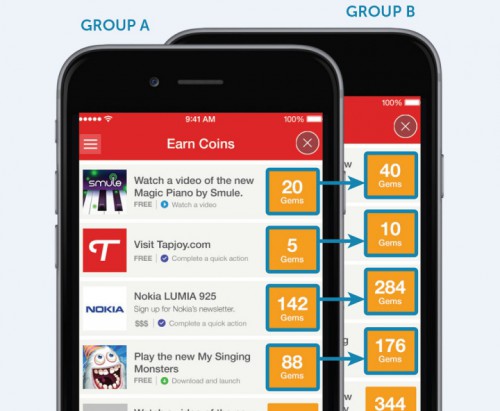Gree: reducing the cost of hard currency increased advertising revenue by 90%
The Japanese company Gree has changed the value of the hard currency in the Kingdom Age game on the advice of the Tapjoy mobile monetization service. As a result, the project’s revenue from advertising increased by 90%. This was told by the Venturebeat resource.
The idea came after a campaign held by Tapjoy. During it, players were given a choice of what to get crystals for (hard currency). They could pay with real money – or, for example, view ads, subscribe to a newsletter, and so on. For these tasks, they received from 1 to 300 crystals, depending on the difficulty. The promotion ended, and the players continued to demand “free” crystals. This led Tapjoy to the idea that the ratio of the real currency to the virtual currency is configured incorrectly.
Initially, the dollar was correlated to crystals as 1:15. For one dollar, the player received 15 units of currency. According to Tapjoy, the in-game exchange rate affects not only how much iAP a player makes, but also how often he watches ads “for a reward”. Therefore, the company decided to try out other proportions.
The players were divided into groups. The control group continued to receive crystals from a ratio of 1:15. In another, the proportion was 1:11.75. Two groups were offered an exchange rate that was 50% and 100% higher than the control. The proportion was 1:22.5 and 1:30, respectively. In the third case, that is, when a player received 30 crystals for $ 1, the total revenue from in-game advertising increased by 90%.
It should be noted that the course affected the “cost” of advertising in a similar way. That is, in the case when the hard currency was 30 crystals per dollar, the player received, for example, not 5 crystals, but 10 for viewing ads.
Gree has applied a new pricing policy to all Kingdom Age players. The revenue from the purchase of hard currency for real money, according to the company itself, has not decreased. This means that the ratio of 1:30 turned out to be optimal.
A source: http://venturebeat.com
Other materials on the topic:

